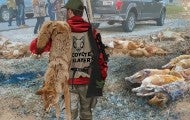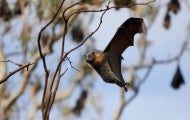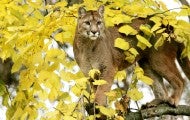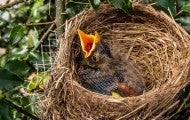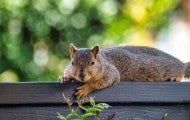Many Marches ago, as I mindlessly contorted myself to pull a deep-rooted weed from the garden patch, my thoughts turned longingly to the smell of fresh basil that would eventually grace what I saw as a still-barren vegetable graveyard. This spot was not so lifeless as it appeared, I would soon learn...
WASHINGTON - The Humane Society of the United States released today the results of a disturbing undercover investigation into two wildlife killing contests in Frederick County and in Waldorf, Maryland. Investigators documented the judging portions of the events, with participants lining up rows of...
Once robust, populations of cougars (also known as mountain lions or pumas) have declined drastically across most of their range in the Americas. The population decline is due to the impact of extensive hunting and predator control, in addition to continued habitat loss and fragmentation. Cougars...


